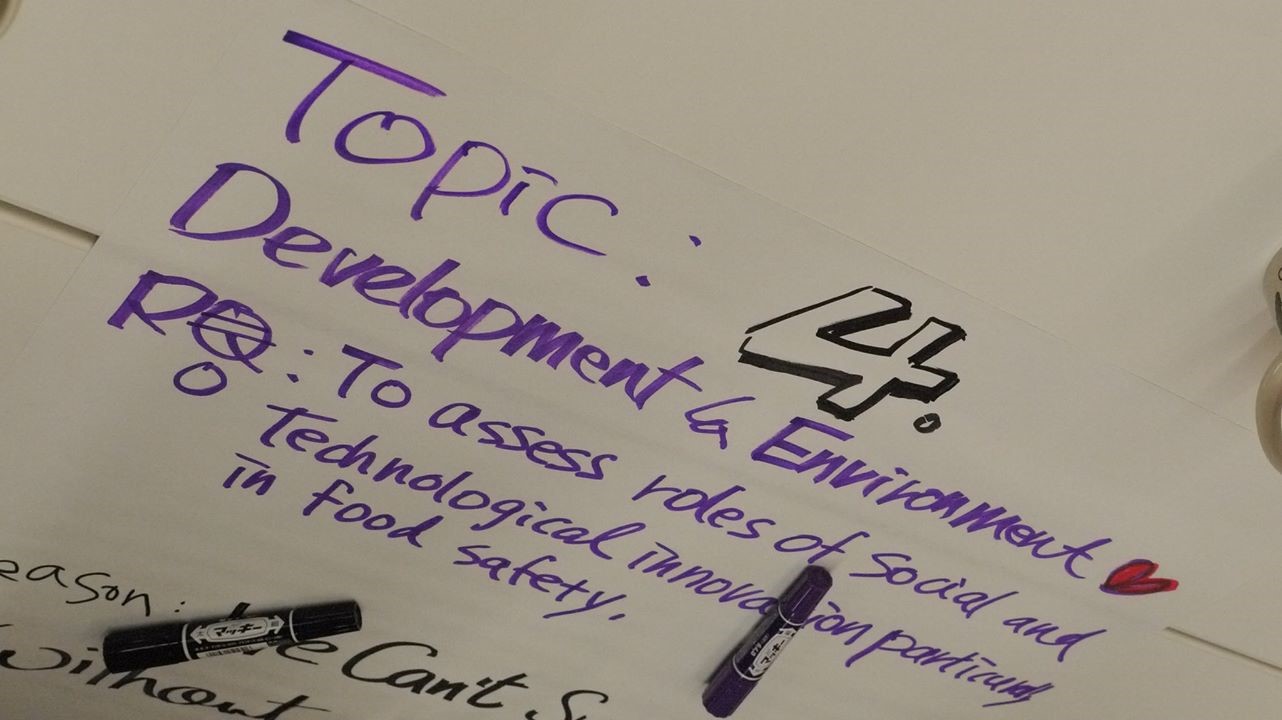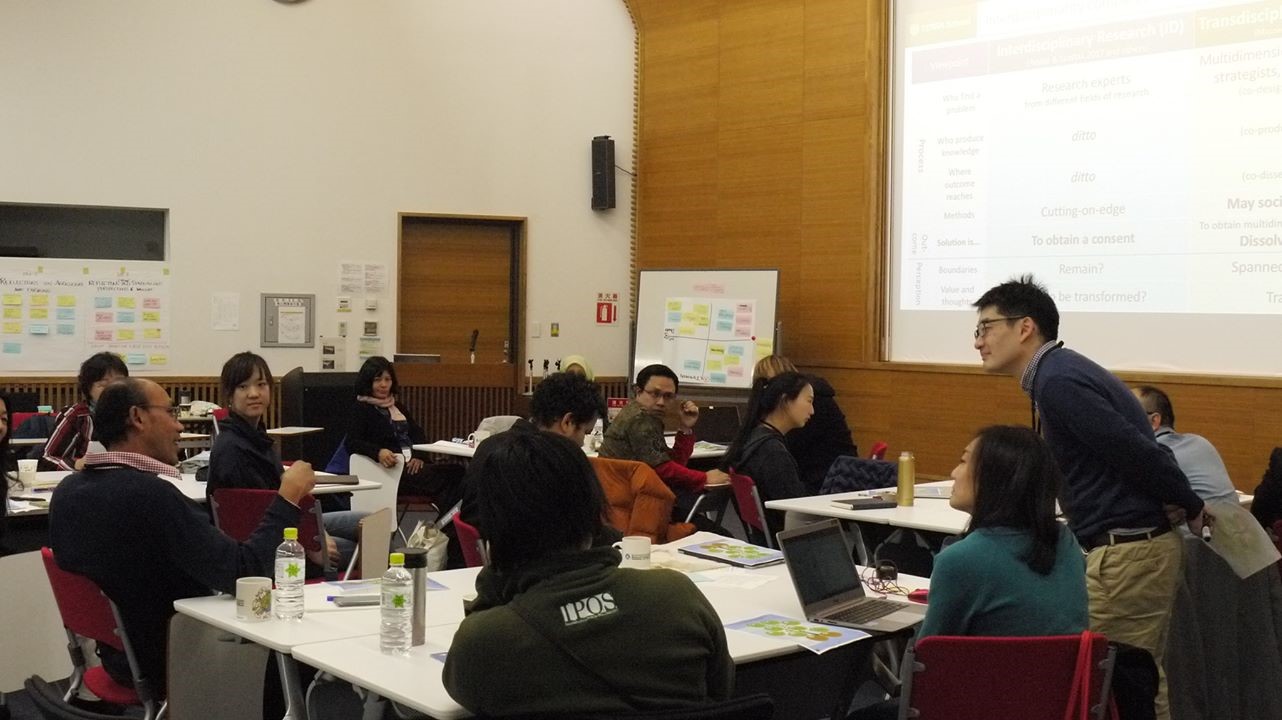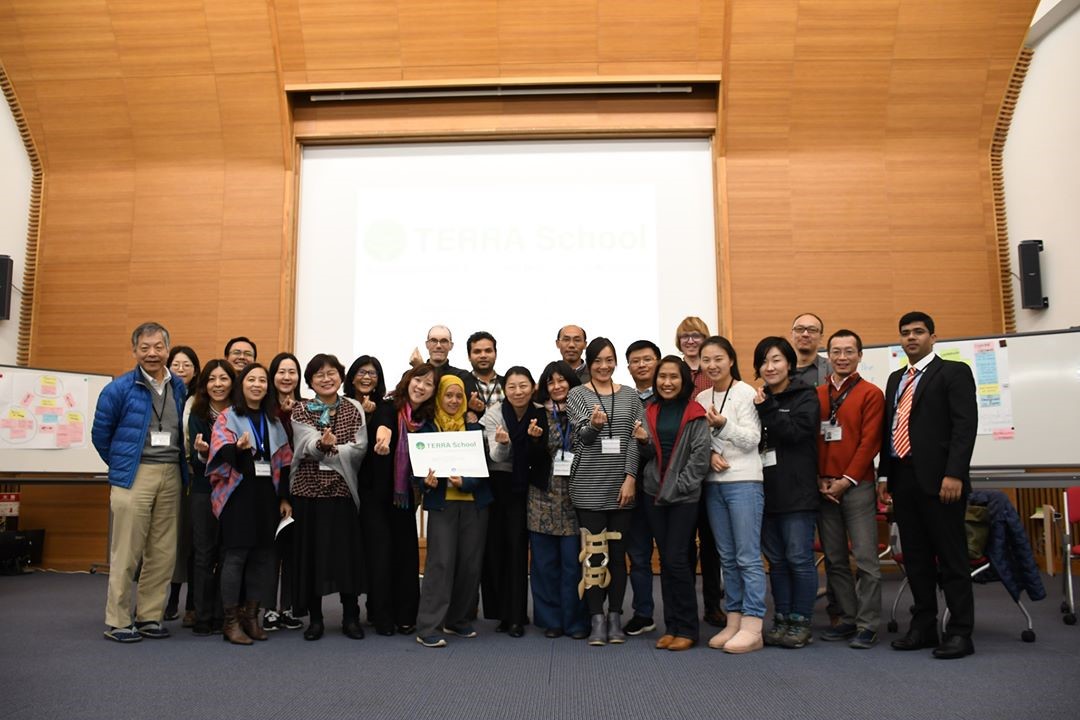What is essential for knowledge co-creation to bring about real-world change?
In 2019 the Future Earth Asia Center, in collaboration with the Research Institute for Humanities and Nature, launched an introductory course on transdisciplinary research for young researchers and practitioners in the Asian region, dubbed the TERRA School (Transdisciplinarity for Early careeR Researchers in Asia School). Here is a short report from the first course which took place in Kyoto on 9-13 December 2019.
On the last day of the TERRA School, the participants worked in groups to develop transdisciplinary research (TD) project on a topic of shared interest for researchers and society. The participants learned in the preceding session that integration ― across disciplines, sites and timelines, and between scientific and real-world elements of the project ― is fundamental for TD projects. Also emphasized as essential for conceptualizing research was to reflect on the interaction among outcome, research questions and theory of changes. It was a challenge for the participants to digest and apply these elements to project development, but with great teamwork and through active discussions, each group managed to identify stakeholders in the real-world for the issue they selected, develop research questions, and explain how the research addressing the research questions would lead to the envisioned real-world changes.



Ahead of the group exercise on the last day, the participants attended case-study sessions, where researchers from the Research Institute for Humanity and Nature (RIHN) shared the lessons and insights earned from their experiences. The topics included various aspects of TD research such as collaborative processes in vision setting, agenda setting with stakeholders and co-production of knowledge and outcome. They also took part in an interactive session, where they exchanged the challenges and thoughts on reconciling diversity in interpretation and values from different disciplines. The session was organized by a RIHN’s research project “Open Team Science”.


Mobilizing what they learned and experienced during the five-day intensive course, the participants accomplished the final task and shaped transdisciplinary research proposals to address societal issues with societal partners.
The TERRA School is a short-term intensive course on co-creation and transdisciplinary research in practice. The program was organized by the Research Institute for Humanity & Nature (RIHN) in collaboration with the Regional Centre for Future Earth in Asia and took place in Kyoto on 9-13 December 2019.

DATE
January 10, 2020AUTHOR
Future Earth Staff MemberSHARE WITH YOUR NETWORK
RELATED POSTS
Call for participants: TERRA School 2022
Early-career Researchers in Asia Learn Transdisciplinarity
Call for participants: TERRA School 2021
